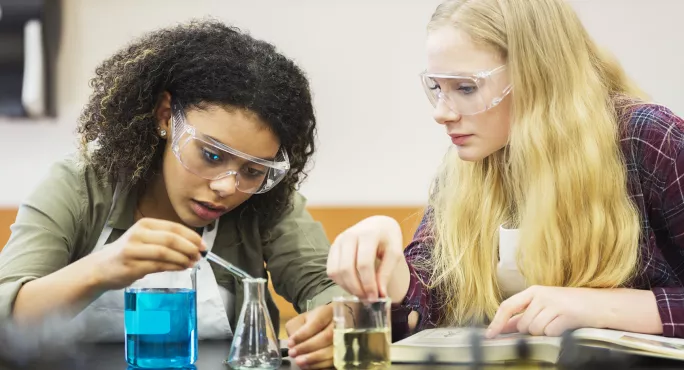Students sitting maths, physics and combined science GCSEs next year will be given additional support during exams as the last cohort “who experienced two years of national closures during secondary school”, the education secretary has announced this morning.
Gillian Keegan said the move was necessary to “ensure students have the opportunity to show what they know and can do, and ultimately meet their potential”.
Ofqual has launched a consultation this morning with proposals to continue the arrangement for exams held in 2023, which allowed GCSE maths, physics and combined science students to use formulae and equation sheets.
Ofqual said the DfE “has confirmed that in view of the disruption students may have experienced, it is not necessary for them to memorise formulae for GCSE mathematics and equations for GCSE physics and combined science in 2024, as they must in a normal year”.
The DfE has asked Ofqual to continue the arrangement for support material “for one further year”.
Teachers, school and college leaders, GCSE students, unions, exam boards and exam officers are asked to share their views on the proposals. The consultation is open until 30 November at 11.45pm.
It comes after key stage 4 attainment data, released last month for the 2023 exams, showed that the disadvantage gap at GCSE was at the highest point it had been since 2011.
Outgoing Ofqual boss Dr Jo Saxton had previously told Tes the return to pre-pandemic exams and grading was “done” after the 2023 exams.
Ofqual said that today’s proposals are “intended to make the exams more accessible to students, while ensuring the qualifications remain valid and meaningful,” Ofqual said.
‘Exams should not be memory tests’
Ofqual said that it “developed these proposals with input from the exam boards, with the aim of putting in place arrangements that are both appropriate and manageable”.
And added: “Ofqual anticipates that schools and colleges will experience limited or no burden from these proposals. Indeed, the changes, as outlined above, are intended to reduce burden on centres, to enable more time for teaching.”
Sarah Hannafin, head of policy at the NAHT school leaders’ union, said keeping the support materials “is the right thing to do” but added that it was “disappointing that this decision has been made so late on, almost a full term into teaching” - and so close to mock exams taking place in December.
Geoff Barton, general secretary of the Association of School and College Leaders (ASCL), said that the union has repeatedly argued to keep pandemic mitigation measures in place.
ASCL has also called for extra support to be supplied “on a permanent basis” as “exams should not be memory tests but a way of seeing how well students apply their knowledge”.
Post-Covid GCSE arrangements
Formulae and equation sheets were allowed for exams in 2022 and 2023 because of disruption to learning caused by the pandemic. Ofqual said it received positive feedback on this allowance and detected no assessment issues as a result of the support materials.
The DfE said support will end after the 2024 exams as students taking GCSEs in 2025 will have had “more time in secondary school with support from teachers, and may have been able to benefit from interventions such as the National Tutoring Programme”.
Ms Keegan said: “Young people taking GCSEs next year will be the last who experienced two years of national closures during secondary school and it’s right that we recognise that with some additional support.
“GCSEs are young people’s passport to their next stage of education and we must ensure students have the opportunity to show what they know and can do, and ultimately meet their potential.”





